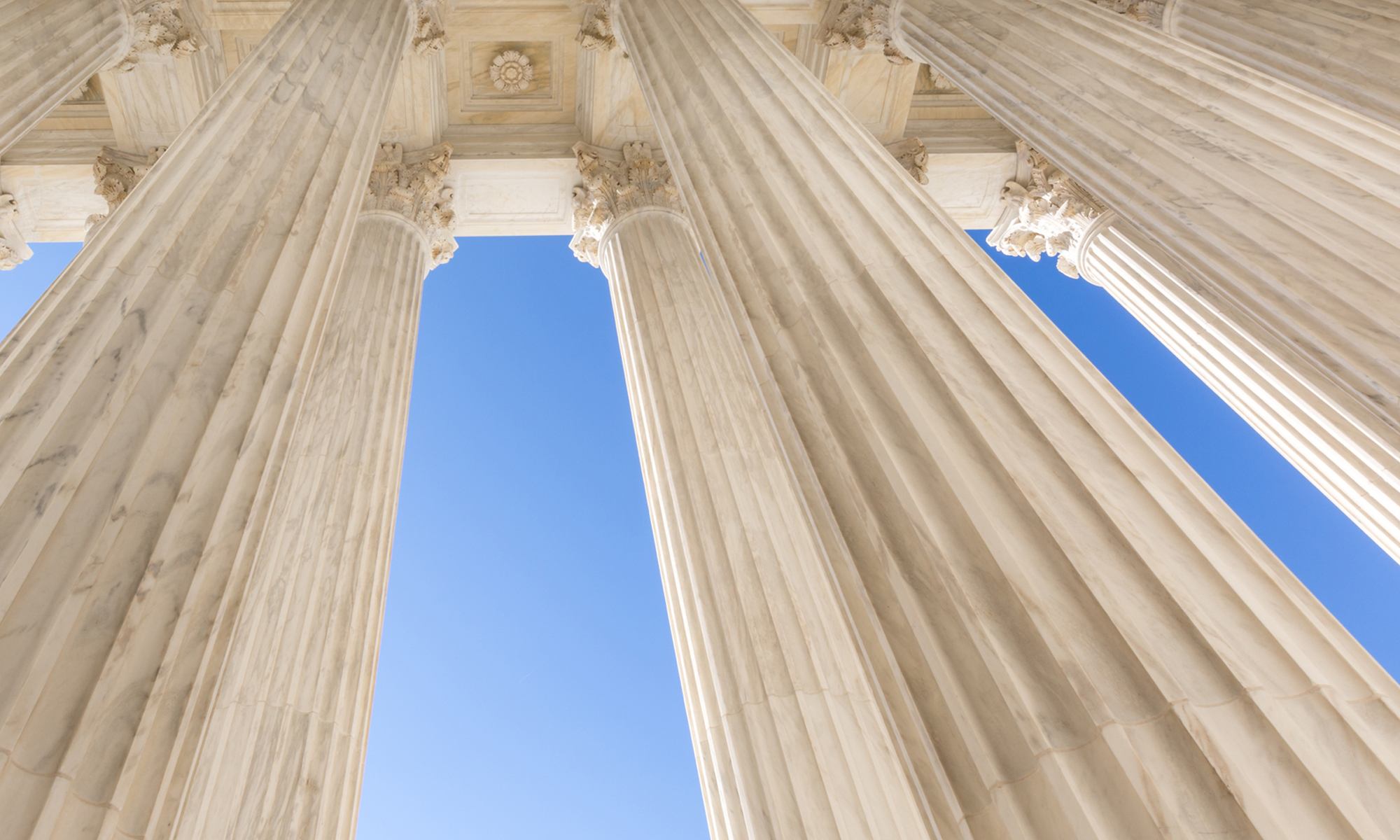 Duane Morris partner Paul J. Killion has been elected to the California Academy of Appellate Lawyers. The CAAL is an election-only organization devoted to excellence in appellate practice, comprised of about 100 of the top appellate lawyers in the state.
Duane Morris partner Paul J. Killion has been elected to the California Academy of Appellate Lawyers. The CAAL is an election-only organization devoted to excellence in appellate practice, comprised of about 100 of the top appellate lawyers in the state.
Pipeline Developers Beware: Third Circuit Disallows Eminent Domain Over State Lands Under Natural Gas Act
In a unanimous, precedential opinion issued on September 10, 2019, the United States Court of Appeals for the Third Circuit held that the Natural Gas Act (NGA), 15 U.S.C. § 717, et seq., does not abrogate state sovereign immunity and does not give private pipeline companies the power in federal court proceedings to condemn property owned by states. See In re PennEast Pipeline Co., F.3d , Nos. 19-1191 through 19-1232, 2019 WL 4265190 (3d Cir. Sept. 10, 2019). This decision—the first on this topic by any federal appellate court—may have far-reaching implications for pipeline development and other infrastructure projects in Pennsylvania, New Jersey, Delaware and beyond.
SCOTUS Rejects Bare-Metal Defense in Products Liability Cases Under Maritime Law
On March 19, 2019, the United States Supreme Court took a middle-ground approach in deciding when, under federal maritime law, a “bare-metal” manufacturer is liable for failure to warn of dangers posed by parts used with its products, even though they are made by other manufacturers. Rejecting both a “foreseeability” standard and the “bare metal defense,” the 6-3 majority in Air & Liquid Systems Corp. v. DeVries held that “[i]n the maritime tort context, a product manufacturer has a duty to warn when (i) its product requires incorporation of a part, (ii) the manufacturer knows or has reason to know that the integrated product is likely to be dangerous for its intended uses, and (iii) the manufacturer has no reason to believe that the product’s users will realize that danger.”
Duane Morris Partner Rob Byer Among Faculty at Advanced Appellate Advocacy 2019
 Duane Morris partner Robert L. Byer will be among the faculty at PBI’s Advanced Appellate Advocacy 2019. Join a panel of appellate judges and experienced appellate lawyers as they walk you through the process of appealing a case to a higher court. They’ll also identify potential minefields that you may encounter and provide guidance for side-stepping an explosion.
Duane Morris partner Robert L. Byer will be among the faculty at PBI’s Advanced Appellate Advocacy 2019. Join a panel of appellate judges and experienced appellate lawyers as they walk you through the process of appealing a case to a higher court. They’ll also identify potential minefields that you may encounter and provide guidance for side-stepping an explosion.
For more information or to register, please visit the PBI website.
Duane Morris’ Thomas Newman Recognized as the NYC Appellate “Lawyer of the Year” by Best Lawyers
Duane Morris’ Thomas Newman has been named by Best Lawyers as the 2019 “Lawyer of the Year” in New York City for Appellate Practice. The recognition is given to only one attorney for each practice area and city. Lawyers are selected based on high marks received during peer-review assessments conducted by Best Lawyers each year. Mr. Newman also received this distinction in 2018 and 2013.
Mr. Newman practices in the areas of insurance and reinsurance law, including coverage, claims handling, contract drafting and arbitration and litigation. In addition to his insurance/reinsurance practice, Mr. Newman has wide experience in appellate practice and has handled hundreds of appeals in both state and federal courts in New York and elsewhere and has argued 80 appeals in the New York Court of Appeals.
He is a member of the American Academy of Appellate Lawyers; a life member of the American Law Institute; a Fellow of the Chartered Institute of Arbitrators; a member of the London Court of International Arbitration; a member of the American College of Coverage and Extracontractual Counsel; a member of ARIAS-U.S.; a member of the Federation of Defense and Corporate Counsel; a Fellow of the New York State Bar Association Foundation; and a member of the New York State Office of Court Administration’s Advisory Committee on Civil Practice.
He is the original author of New York Appellate Practice, co-author of the Handbook on Insurance Coverage Disputes and the author of numerous articles on insurance/reinsurance and appellate practice.
Supreme Court Resolves Circuit Split: Single Asset Statement Reflects Debtor’s Financial Condition, Must Be Made in Writing
On June 4, 2018, the U.S. Supreme Court issued its opinion in Lamar, Archer & Cofrin, LLP v. Appling, 584 U.S. ___ (2018), resolving a circuit split on the issue of whether a debtor’s statement about a single asset constitutes “a statement respecting the debtor’s financial condition” for the purposes of 11 U.S.C. § 523(a)(2). Affirming the Eleventh Circuit’s decision, 848 F.3d 953 (11th Cir. 2017), the Supreme Court held that a debtor’s statement about a single or specific asset does fall within the scope of the statutory phrase “a statement respecting the debtor’s financial condition,” and therefore, such a statement must be made in writing in order to constitute grounds for nondischargeability.
Read the full text of this client Alert on the Duane Morris LLP website.
Robert Byer Presented with 2018 Lifetime Achievement Award by The Legal Intelligencer
 The Legal Intelligencer has presented Duane Morris partner Robert L. Byer with a 2018 Lifetime Achievement Award, which recognizes those who have left an imprint on the legal history of Pennsylvania during their career.
The Legal Intelligencer has presented Duane Morris partner Robert L. Byer with a 2018 Lifetime Achievement Award, which recognizes those who have left an imprint on the legal history of Pennsylvania during their career.
Please visit the Duane Morris website to read a profile of Rob originally published in The Legal Intelligencer.
Supreme Court May End Web Retailing As We Know It in South Dakota v. Wayfair, Inc.
The manner in which small businesses can easily solicit orders and sell merchandise over the internet may soon end. In its place, the Supreme Court may require a more regimented and costly scheme that may force many small businesses to go out of business or limit their sales to certain states. It all depends on the outcome of a recent case in the Supreme Court called South Dakota v. Wayfair, Inc. While Wayfair itself is not a small business, a decision in this case could adversely impact many small businesses that argue, like Wayfair, that they should have some presence in the state (and thus be a user of state services) before a state can impose a tax or tax collection duty on them. On the other hand, many larger businesses, local nonweb businesses and the states believe all businesses, whether in a state or not, should collect sales/use tax to even the playing field, and if some small businesses can’t hack it or handle the administrative or financial cost, so be it. This is the background on the issues at play in Wayfair.
Read the full Alert on the Duane Morris LLP website.
How Long Does a Ninth Circuit Civil Appeal Take?
So how long does a Ninth Circuit civil appeal take? Using the most recent statistics from the Administrative Office of the United States Courts published in its Judicial Business 2017 report for the fiscal year ending September 30, 2017, the median time from notice of appeal to decision in the Ninth Circuit was 22.8 months (and that is just the median time–half the appeals take longer.) (See Table B-4A to the report.) The next slowest circuit—the Third Circuit—handles civil appeals in just about the same length of time: 22.3 months from notice of appeal to final decision. (The Third Circuit’s disposition time is puzzling because it is usually closer to the median.) The 2017 median time from notice of appeal to decision across all Circuits is 12.1 months.
The Ninth Circuit is the largest circuit geographically, and it remains the busiest, with 11,096 appeals filed in the year ending September 30, 2017. The next busiest circuit—the Fifth—had 7,099 appeals filed in the same period. Measured by matters terminated on the merits per active judge and per panel, however, the Ninth Circuit ranked third among the circuits for the year ending September 30, 2017, with 463 merits-based terminations per judge and 771 per panel. The circuit with the heaviest workload, using this same measurement, is the Eleventh Circuit, with 762 merits-based dispositions per judge and 904 per panel. The lowest terminations per active judge is DC Circuit, with 137 per judge, and 131 per panel.
Sixth Circuit Extends Title VII Gender Protections to Transgender and Gender Transitioning Employees
Momentum continues to build behind the expansion of protections because of “sex” under Title VII of the Civil Rights Act of 1964. Less than two weeks after the en banc U.S. Court of Appeals for the Second Circuit issued its opinion in Zarda v. Altitude Express, Inc., holding that Title VII prohibits sexual orientation discrimination, the Court of Appeals for the Sixth Circuit (with jurisdiction over Kentucky, Michigan, Ohio and Tennessee) held in Equal Employment Opportunity Commission v. R.G. &. G.R. Harris Funeral Homes, Inc. that Title VII prohibits employers from discriminating on the basis of transgender and gender transitioning statuses.
At present, federal courts in Connecticut, Illinois, Indiana, Kentucky, Michigan, New York, Ohio, Tennessee, Vermont and Wisconsin recognize expanded protections because of “sex” under Title VII. In contrast, federal courts in Alabama, Florida and Georgia do not recognize such protections. This split of authority likely will remain, and may even deepen if other circuit courts address these issues, until the Supreme Court resolves the matter.
To read the full text of this Duane Morris Alert, please visit the firm website.
